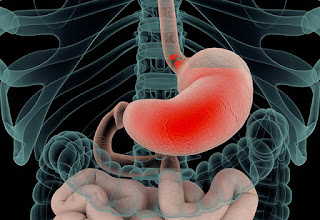Coil Coatings Play A Vital Role In Protecting Metal Surfaces From Corrosion And Enhancing Their Resistance To Various Weather Conditions
 |
| Coil Coatings |
Coil coatings play a vital role in protecting metal surfaces
from corrosion and enhancing their resistance to various weather conditions.
Metal substrates, such as steel and aluminum, are widely used in industries
ranging from construction to automotive due to their strength and durability.
However, these metals are susceptible to corrosion when exposed to moisture,
chemicals, and environmental factors. Coil coatings offer a protective layer
that not only shields the metal but also provides aesthetic appeal.
Coil Coatings are thin layers of protective material applied to metal coils through a
continuous coating process. The coatings are typically composed of a
combination of resins, pigments, solvents, and additives. They are carefully
formulated to provide excellent adhesion to the metal surface and offer
exceptional resistance against corrosion and weathering. Coil coatings are
available in various types, including polyester, polyurethane,
silicone-modified polyester, and fluoropolymer, each offering specific
properties and performance attributes.
One of the primary functions of coil coatings is to provide
corrosion protection for metal substrates. Metal surfaces are vulnerable to
corrosion, which can lead to structural degradation, loss of functionality, and
reduced lifespan. Coil coatings act as a barrier between the metal and
corrosive elements present in the environment, such as moisture, salt,
chemicals, and pollutants. The coatings prevent direct contact between the
metal and these corrosive agents, effectively inhibiting the electrochemical
reactions that lead to corrosion.
Coil coatings create a protective shield that resists the
penetration of moisture, preventing it from reaching the metal surface and
initiating the corrosion process. Additionally, the coatings' chemical
composition and formulation contribute to their corrosion-resistant properties.
They are designed to withstand harsh conditions and exhibit high chemical
resistance, preventing the degradation of the coating itself and preserving the
integrity of the underlying metal substrate.
In addition to corrosion protection, coil coatings offer
enhanced weather resistance to metal surfaces. Metal products are exposed to
various weather conditions, including UV radiation, temperature fluctuations,
humidity, and atmospheric pollutants. These factors can cause degradation,
fading, and surface deterioration over time. Coil coatings are engineered to
withstand these environmental challenges and maintain their performance and
appearance.
Manufacturing is one sector that is significantly impacted by
the virus's effects. The oil and gas, electronics, aerospace, metal processing,
automotive, and lockdown industries all temporarily ceased their manufacturing
and factory operations during the lockdown. The majority of the Plastic Films industries' raw material needs are met by China. As a result, supply
chain interruptions have had a substantial impact on the industrial sector's
output. The pandemic has caused the world economy to contract.
UV stability is a crucial aspect of coil coatings, as
prolonged exposure to sunlight can lead to color fading, chalking, and surface
degradation. Coil coatings with UV-resistant pigments and additives effectively
absorb and reflect UV radiation, minimizing the impact of sunlight on the
coating and the underlying metal substrate. This ensures that the coating
retains its color vibrancy and overall aesthetic appeal for an extended period.



Comments
Post a Comment